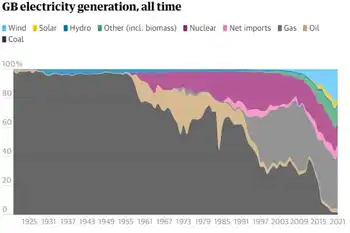Energy minister promises price comparisons
By Toronto Star
NFPA 70b Training - Electrical Maintenance
Our customized live online or in‑person group training can be delivered to your staff at your location.

- Live Online
- 12 hours Instructor-led
- Group Training Available
“We will not accept anything but a rate disclosure comparison,” Duguid said in an interview.
He said he will speak to the Ontario Energy Board OEB, which is drawing up rules for energy marketers, to make sure they require the marketers to provide price comparisons.
DuguidÂ’s comments came after the Star reported that the energy ministry had removed a draft price disclosure document from its website.
The retailer would be required to give the document to consumers who sign electricity contracts. The draft document provided a side-by-side comparison of what a consumer would pay for electricity after signing the contract, and what the consumer would pay if he or she paid the regulated price for power.
“The sample was removed from the ministry website because the job of drafting a disclosure statement was given to the OEB,” said Duguid.
“It would be confusing for Ontarians to have different proposed disclosure statements floating around.”
But the current disclosure statement being proposed by the energy board does not have a direct, side-by-side price comparison.
“It’s not acceptable that the comparison’s not on there,” Duguid said. “It’s always been our intention to have it there, and it continues to be our intention, and it will remain thus.”
“We’ll certainly let them OEB know that we do not agree with the prospect of bringing forward a disclosure statement without the comparison of rates. We’ll let them know that, and ensure that’s clarified.”
Asked whether the energy board should draft its own model price comparison, Duguid replied:
“They’re going to need to, and we look forward to seeing that as soon as possible.”
The price comparison disclosure is part of the new Energy Consumer Protection Act, which comes into force in January, 2011.
The act will also address “excessive cancellation fees” on energy contracts, and “shady types of sales pitches” by energy marketers, Duguid said.
The energy board has pointed out that price comparisons arenÂ’t simple.
While retailers offer a fixed price for a given term, the regulated price is subject to regular adjustments.
Even those who sign a fixed price contract can’t be sure of their exact price, because they have to pay an additional fee called the “provincial benefit,” which changes monthly. So far this year, the provincial benefit has added about 3 cents a kilowatt hour to the price charged by the retailer.
“The OEB has indicated that it’s challenging to accommodate our request, but we’re confident that we can find a way to meet that challenge,” said Duguid.











